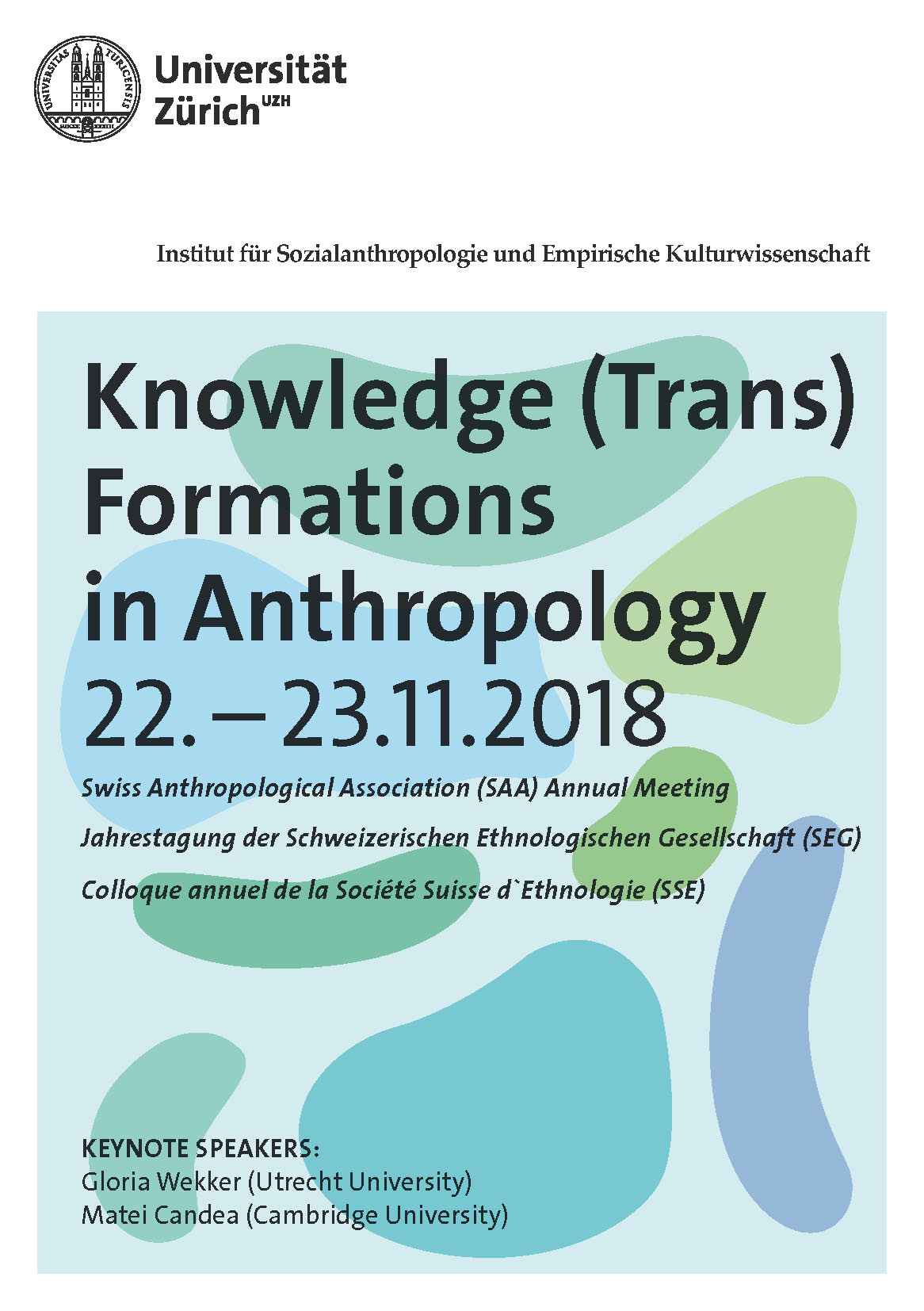SEG-SSE-SAA Conference 2018
Annual Meeting of the Swiss Anthropological Association 2018, Zürich 22 - 23 November 2018
Knowledge (Trans)Formations in Anthropology
The notion of knowledge has a long and contested history in anthropology: starting from early debates on "primitive knowledge" and studies of magic, science and religion, to diverse cognitivist approaches, analyses of the relation between power and knowledge, and ethnographies of science and expertise in the making. As such, one may argue with Boyer that "the problem of 'knowledge' has always been at the center of anthropological attention" (2005: 142).
Indeed, the study of knowledge is not merely a subfield of the discipline and therefore only of interest to anthropologists reflecting on its history and practices. Rather, it constitutes a field of inquiry that anthropology as a "Wissen-schaft" is or should be centrally concerned with. This year's annual meeting of the SSE-SEG-SAA seeks to initiate conversations on knowledge as an object of inquiry as well as knowledge as a product of anthropological work. This involves questions relating to the anthropology of knowledge on the one hand and the political, philosophical, ethical, and methodological implications of the ways in which anthropological knowledge is produced, attained, transmitted, and transformed on the other. More specifically, we seek panels that critically engage with either (or both) of the following two sets of questions:
Firstly, we invite contributions that address knowledge as an object of inquiry of anthropological research: What kinds of knowledge (cognitive, embodied, tacit, distributed, etc.) and epistemic cultures do anthropologists study in different settings? How is knowledge produced or acquired within these settings? How do(es) particular knowledge(s) influence the way people interpret and act upon the world? Who are the experts we encounter in the field? How is knowledge tied up with relations of exploitation and inequality? When and how is previous knowledge questioned, unsettled, contested or established differently? What roles do marvel, surprise, doubt, ignorance, and non-knowledge play in our fields?
Secondly, we welcome discussions about knowledge within anthropology itself: Is there such as thing as anthropological knowledge? If yes, what are the conditions of possibility for such knowledge? How do we gain knowledge within and through encounters in the field, with colleagues, or while teaching? What are its strengths and shortcomings? How is anthropological knowledge production related to issues of inequality as well as political and structural precarity? Why is anthropological knowledge important at all? How is anthropological knowledge transmitted within and beyond the discipline? And how do we contribute to public debates and make the discipline heard?
Boyer, Dominic. 2005. Visiting Knowledge in Anthropology: An Introduction. Ethnos 70(2): 141-148.


